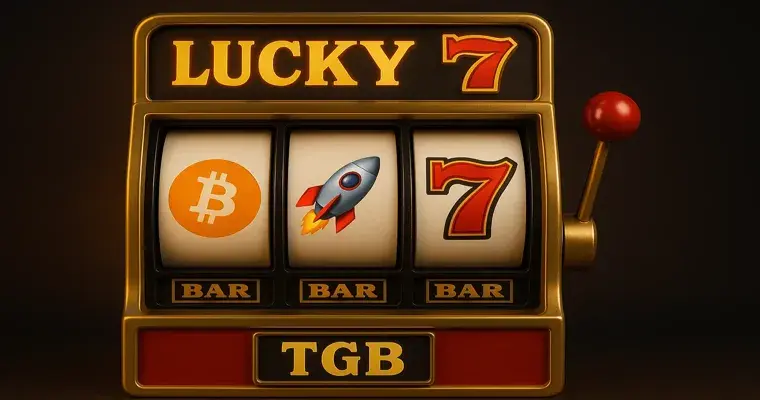Listen, do you hear that noise? That’s the sound of thousands of nonprofits establishing their very first crypto fundraising programs.
All across the charitable sector, wheels are turning and lightbulbs are clicking about crypto philanthropy’s upsides. And there are plenty of them.
Maybe your organization is looking for younger supporters or looking to explore collaborations via an NFT fundraising campaign.
Or maybe you’re excited by this new donor demographic that is highly motivated by tax incentives to support their favorite causes with assets like Bitcoin, Ethereum and USDC.
Once you’ve done your research, convinced your board and secured the budget for a crypto fundraising solution, what’s next? First, a pat on the back—well done!
Before long, you’ll be all set up and ready to actually get some cryptocurrency donations from real donors. But that part can seem like a daunting task, even for the most confident fundraiser.
The good news is that we’ve helped thousands of organizations like yours get over the hump. And we won’t let any confusion or obstacles stand in the way of your team launching a successful crypto fundraising campaign.
So without further ado, here are six roadblocks that can give nonprofits pause, paired with some best practices and ideas to help you navigate them with ease.
1. Overcoming common myths and misconceptions
One of the initial challenges your nonprofit will encounter is what we call “FUD,” or a combination of fear, uncertainty and doubt.
It’s the fork in the road that causes some nonprofits to stray from the path that can unlock a promising new revenue stream—the kind with average donation sizes in the thousands.
You may have heard some of these before:
- Myth #1: Crypto is a passing fad. It will disappear in a few years.
- Myth #2: The only people using crypto are criminals.
- Myth #3: Donors only give to nonprofits with large budgets.
On that last point, we’ve seen time and again how crypto donations can be a game-changer for smaller-sized nonprofits.
As a smaller organization with a smaller team, we saw how crypto could level the playing field and provide massive fundraising success.
The list of crypto fundraising myths goes on and on, but we’ve debunked many of the most popular ones.
Separating fiction from reality is essential for your team, but it’s equally important to internalize the facts so that you can articulate them later on.
Which leads us to the next obstacle we see often…
2. Glossing over the biggest benefits
When submitting your department’s budget proposal for the new year, it all comes down to ROI. This applies to everything, from new hires to new platforms.
Trust us, we get it. The cost-versus-reward factor should definitely be a part of your decision about which crypto donation platform you choose.
But the discussion shouldn’t stop with those high-level internal conversations.
Once you choose to dive into the world of crypto fundraising, you’ll also want to craft an email and/or blog post that educates your current donor base about some of these benefits of crypto donations:
- Tax benefits that enable crypto donors to give more.
- Average donation sizes in the major gift range.
- A new way to reach Millennial and Gen Z donors.
- Opportunities to launch NFT charity auctions.
- A demographic excited not just about where they give, but also what and how they give.

Informing your supporters about the huge potential impact of crypto donations is a step you can’t miss. Why? Because with 1 in 5 Americans saying they have used crypto, the odds are good that they know someone (or are that someone) who could be in a position to donate crypto to your mission.
Need a refresher or a link to send your supervisor? Check out this quick overview of why nonprofits accept crypto donations.
3. Misjudging the crypto market’s volatility
One of the easiest traps to fall into is to believe the “Crypto is Dead” narrative that seems to reappear every time the market dips.
(There’s even a website that tracks every Bitcoin obituary published in the news since 2009.)
But the truth is that the value of Bitcoin, like the greater crypto market, has appreciated exponentially over the past decade-plus.
Plenty of negative things have been said about crypto’s volatility, but here’s a healthy dose of perspective for fundraisers to consider…
Many recent investors are still “up”
Most experts agree that the stock market appreciates by 6 to 8% annually. Year over year, the crypto market has outperformed the traditional stock market by leaps and bounds.
Even with the recent correction in which Bitcoin lost ~70% of value from its all-time high, investors who bought as recently as 2020 would still have positive returns.
That’s part of the reason why crypto donors still rallied to support causes like Ukraine humanitarian aid in the midst of a market “freefall.”
Market dips create giving opportunities
For more experienced investors, the dramatic market corrections are part of the opportunity.
Once the market returns to a period of growth, these same investors will have greater gains, and in turn, more to donate to charities.
We understand that market downturns can instill a sense of anxiety, but it’s actually a great time to steward future donors. And to help nonprofits like yours succeed, we’ve compiled several fundraising tips for charities during crypto bear markets.
4. Getting confounded by crypto donors
With the average nonprofit donor’s age hovering around 65, crypto donors are quite a departure from the norm.
With an average age of 38, crypto users enjoy relative affluence compared to their peers, and demonstrate a greater willingness to give than traditional donors. By and large, they love the fact that they can donate with crypto.
These modern philanthropists are redefining what it means to support charities, and making crypto donations worth hundreds of millions.
Given these unique traits, nonprofits should be ready to rethink their major gift stewardship strategies when approaching crypto donors.
Here are just a few types of crypto donors you’ll encounter:
- The anonymous donor who donates without any fanfare and wants no contact from your team
- The pseudonymous donor who will post their donation receipt on Twitter with personal details crossed out
- The NFT creator that donates a portion of their proceeds using a smart contract
- The advocate who helps allocate funds from their Decentralized Autonomous Organization (aka “DAO”) for charitable giving
- The donor who organizes a crypto fundraiser for a cause they are passionate about
For a deeper dive into crypto donor archetypes, download a free copy of our exclusive, first-of-its-kind report, Getting to Know Cryptocurrency Donors.
5. Amending your gift acceptance policy
Your gift acceptance policy is an essential document for your nonprofit.
A clear policy articulates to your donors what kind of donations you can accept and how you handle them once received. Your policy likely includes a section or provision on stocks or other traditional non-cash properties.
But because cryptocurrencies are a relatively new asset class, your policy might not address donor questions around digital assets yet.
We’ve seen how this lack of specific language on crypto donations can be a hidden hurdle keeping nonprofits from being ready and able to accept donations from the crypto community. And it’s easily amendable.
These are a few questions that could inform your cryptocurrency gift acceptance policy:
- Will you accept all kinds of cryptocurrencies, or a select number?
- Will you automatically liquidate your crypto donations upon receipt, or treat them as an investment?
- If you decide not to automatically liquidate crypto donations for cash, will you opt to follow your donor’s wishes, or will you have clauses for different scenarios?
- Will you accept anonymous donations from cryptocurrency donors?
- If someone wants to donate an NFT to you, can you accept it or will you sell it for its market value?
This may seem like a bit of minutia in the grand scheme of things, but don’t underestimate how the finer details can work in your favor.
Here’s an example that stands out for its simplicity and clarity. The University of North Carolina at Chapel Hill clearly articulates its gift acceptance policy for crypto donations so that donors understand what happens to their donation upon receipt.
Your gift acceptance policy can make it easier for your team or board to steward crypto donors, and avoid unnecessary communication delays that can affect donor relationships.
6. Curing your nonprofit’s impostor syndrome
Here it is, the number one challenge nonprofits face when accepting crypto donations. Many, many nonprofits worry that their outreach efforts will be perceived as inauthentic by crypto enthusiasts.
It’s OK to wonder: Does my team know enough to actually do this? Will our mission resonate with this community? Are we simply too late?
We’re here to break some good news: if you’re reading this, you (and your nonprofit) are on track to being one of the early adopters of crypto.
That’s right. Everything you know about crypto has been built in the past fifteen years, or is being built right now: blockchains, apps, tokens, and especially communities.
There are 300 million crypto users today, or roughly 4% of the global population. And while there are 1.7 million nonprofits registered in the United States, the number accepting cryptocurrency donations is in the thousands.
But things are changing—quickly.
Nearly half of the country’s top 100 charities are now crypto donor-ready, up from just 12 a few years ago.
And more than 80% of Millennial millionaires reportedly invest in cryptocurrency.
To quote Wells Fargo, crypto is nearing a “hyper-adoption phase” similar to the Internet in the mid-to-late 1990s.
Starting with crypto now is a great way to future-proof your nonprofit and commit to nurturing the next generation of philanthropists that can help you achieve your nonprofit’s goals.
Because everyone is relatively “new” to crypto, there’s zero shame in seizing the moment, wishing your Twitter followers a hearty “GM,” and taking it one day at a time.
Soon enough, your team will be fluent in Crypto Twitter memes and know the difference between ApeCoin and Dogecoin. And best of all, you’ll know what motivates crypto donors to support their favorite causes.

Meet Your Revenue Goals with Crypto Fundraising
Crypto philanthropy can help your nonprofit rebound from revenue deficits caused by the donation shortfall at the height of the COVID-19 pandemic, an aging donor base, and shrinking grant opportunities.
As a trusted leader in the space, The Giving Block has helped thousands of nonprofits of all sizes achieve crypto fundraising success, from local food banks to world-renowned cancer research hospitals.
Once you’re up and running, what’s next? Your fundraising team can immediately:
- Take advantage of our easy-to-use platform
- Access our expert-informed knowledge center database
- Get your brand-new crypto donation page live
- Attend webinars and strategy sessions with fundraising specialists
- Join the growing crypto philanthropy community that’s revolutionizing charitable giving
You don’t need to be a crypto or web3 expert to achieve great crypto fundraising outcomes. Schedule a demo with The Giving Block to learn how.























